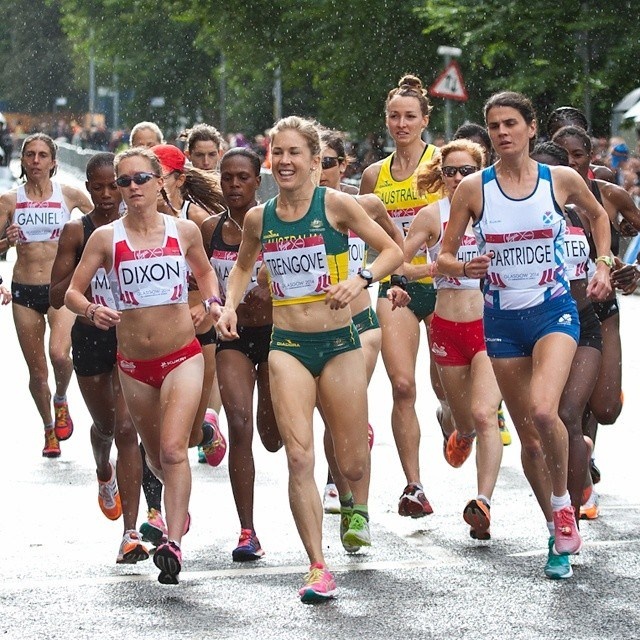The airport scene has become a little too familiar in recent months. This time I am homeward bound for the Easter long weekend and rather than make the same old mistake of draining my phone battery, I opted to put my laptop to use. One week ago today, a small group of Aussies including myself ventured out of our Guiyang hotel in an attempt to find the one-and-only coffee spot that showed up on Nipper’s Coffee Bean App. Unfortunately the result looked a little dubious so we walked on through the chaotic industrial streets to find some seats and hot drinks that would suffice.
A lot has happened since that moment and no doubt everyone at the table that day has returned from the IAAF World Cross-Country Championships, a stronger athlete, regardless of their result. The race-day photos posted by Michael Scott yesterday prompted me to reflect on that momentary pain experienced in the 8km event (a very long moment mind you) and in races dating back to my first Primary School Cross-country run in 1993.
RACE DAY: CROSS COUNTRY
So, what should you tell yourself when your body is giving you some very strong physical hints to stop?! All I can do is speak from experience and provide strategies that have helped me. I recall a point with 1.5 laps left of the 4x2km lap course in Guiyang, where the idea that I may not be able to finish the race suddenly lit up in my mind. This thought is not unfamiliar to me in races, in fact is has existed in most, if not all five marathons that I have run. Whilst the physical demands of this cross-country race were different to those of a marathon: uneven and irregular surfaces, rolling hills and “obstacles”, tight corners, different air quality, spikes being worn etc., the mental battles were similar.
On Saturday it was the quads that first gave-in to the challenging course. Lactic acid! Soon afterwards, my lungs started to burn. I had to reinforce to myself that I had pushed through this pain in training and racing before… I could do it again if I maintained concentration and drew strength from the rest of the Australian team. Reminding myself of my strengths and capitalising on these could have a positive impact, even if they didn’t feel like strong points at the time. Focusing on an upcoming landmark or tuning in to a voice in the crowd were other ways I took my mind off the pain. Low and behold, I was able to cross the line on Saturday in 55th position, having slowed in pace but feeling satisfied. To have given everything I had on the day was a very rewarding feeling, despite having hoped for a better result.

(World XC photo credits to Michael Scott)
THE MARATHON: SPECIFIC STRATEGIES
There has been a moment in most of my marathons, usually at about the 13-15km mark, where a sudden rush of anxiety comes over me. I attribute this feeling to the realization that I still have a very long way to go. Although I feel relatively comfortable from a physical perspective at this point, it is where the mental game begins. Positive reinforcement, self-talk and mindfulness come in very useful. Affirmations like “I do feel good” and “I have prepared well” are good self-reminders.I bring my mind back to the present and focus on what I need to do now to help me later. Aside from the initial stages of a race where planning the pace is crucial, thinking too far ahead can be dangerous. Focusing on the next re-fuelling station; how you will approach it, how much you will drink etc. is a nice way to break up the race. Tuning into your breathing pattern, stride length, running form and making necessary adaptations to improve efficiency can pay dividends later. When the technical elements start to test my mental capacity, I like to take note of people or objects around the course and have a song with a good beat in my head. I draw strength from thinking about those who have provided support, whether it be family and friends at home or the well-wishes from strangers. Recognising people cheering in the crowd is a great reminder of how special it is to have the opportunity to run a marathon. Finally, I couldn’t finish this off without acknowledging the power of showing your enjoyment when you can. Admittedly, I find it much easier to break a little smile in the marathon, where I feel more at home than in shorter races.
Whilst the greater sense of accountability and subsequent pressure that we place on ourselves can make the mental aspects of racing more over-whelming than in training, the more you practice, the better you become. To anyone competing in races, particularly the upcoming marathons, I hope some of these strategies are of benefit.
In the meantime, Happy Easter!
Thanks, Jess






























